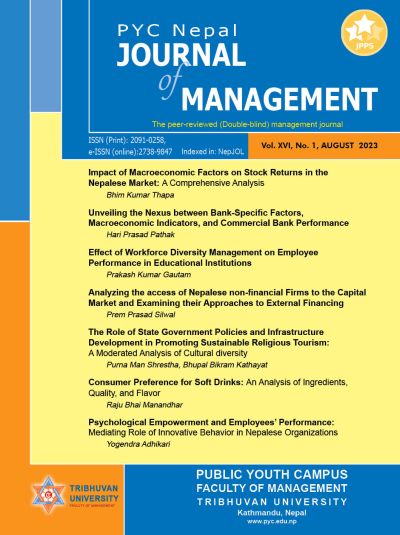Impact of Macroeconomic Factors on Stock Returns in the Nepalese Market: A Comprehensive Analysis
DOI:
https://doi.org/10.3126/pycnjm.v16i1.68077Keywords:
Stock Return, Macroeconomic Factors, Broad Money Supply, Real GDP, Interest Rate, Inflation Rate, Macroeconomic Factors, Broad Money Supply, Real GDP, Broad Money Supply, Interest Rate, Inflation RateAbstract
In numerous countries, such as Nepal, financial markets have become absolutely necessary component of their national economies. The significance of a country’s stock market can be estimate from the fact that stock market indices are now utilized as a barometer of the country’s financial health. Macroeconomic factors have a significant impact on economic activity and they also influence the success of the stock market. The study has used time series data from 1994 to 2022 in multiple linear regression of OLS approach. The stock market’s performance is influenced by several macroeconomic factors, including the gross domestic product (GDP) as a Quantify of economic expansion, inflation as a constraining factor on spending, overall interest rates and broad money supply. Multiple regression analysis has revealed that both real GDP and broad money supply positive and statistically significant impact the rise in stock return. However, in Nepal, inflation and interest rates negatively affect stock returns, with interest rates exhibiting a significant impact on stock returns, as indicated by this study. Whenever the stock market undergoes a substantial downturn, it raises worry of an upcoming trouble. Consequently, government officials and policy-makers must be mindful of this issue.
Downloads
Downloads
Published
How to Cite
Issue
Section
License
© Public Youth Campus

